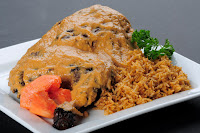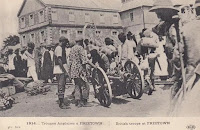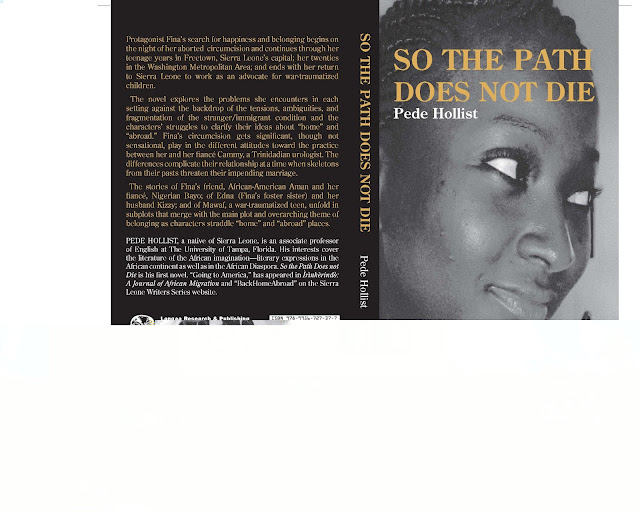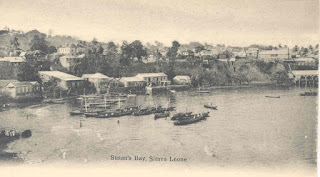Vitabubooks Interview | Shika Ademu-John
Shika E. Ademu-John's LinkedIn summary describes him as a professional with over 20 years of public relations, sales and marketing experience; a team player with skills focused on contributing solutions for healthcare. Shika is also a blogger. In the "About me" section of his old blog, he writes of his passion for African food. Shika is onetime owner-manager of the Awujoh Restaurant which he opened sometime in 2003. Awujoh enjoyed rave reviews from papers such as The Home News Tribune, The Star Ledger, and The Courier News in 2006 with a Zagat rating in 2007. Now, he's sharing his secrets in a cookbook entitled My Wife's Hands that will be available on his website sometime this summer. Shika describes the book simply as an "anthology of African recipes that document the attributes of African cuisine." Vitabu Books caught up with him on Facebook where he serves up scrumptious dishes like the smoked pepper chicken in the photo. The caption reads: Garnished with peanut butter sauce and cooked in a hint of lemon sauce, herbs and spices delicately blended to strike a succulent blend that excites, explodes and taunts the taste buds. Served alongside Jollof rice.
Vitabu Books: When did you start thinking you wanted to write a cook book? What made you want to do it?
Shika Ademu-John: I decided to write a cookbook well over eighteen years ago. I was always intrigued by the response our guests, visitors and children had towards my wife’s cooking. Growing up, I witnessed the same response to my mother’s cooking. My mother’s palavasauces were incredible. In fact that was a key attribute to my size as a child growing up in Sierra Leone. I could not resist the taste of our dishes. Early in life I realized the importance of good food to any occasion or audience. Good food made for conversation; good food created a memory that hallmarked an occasion. The taste of a dish, the aroma of a cuisine creates a door in one’s mind that locks in place and time the memory of an event.
As I watched the precision and sustained integrity that went into the preparation of my wife’s dishes, the rush and scramble of our guests for take-out boxes was evidence enough for me to document these secrets and reveal them to the world. From a health perspective, the research for most of the ingredients opened doors to the politics around African food ingredients. For example palm oil, a key component for most palavasauces, at one point was mislabeled and determined risky for consumption and linked to heart failure. These incendiary remarks were made with no scientific data and promoted by palm oil’s competitors. An in-depth study revealed that most of the ingredients utilized in African dishes are perfectly safe and contribute to healthy lifestyles and healthy diets. Palm oil today is dubbed by the Malaysian palm oil council as God’s gift to mankind.
Lastly, the fans we served at our restaurant, Awujoh, never stopped calling to find out if we had relocated or re-opened elsewhere. That was testimony that we had a story to tell. Strangers that never saw or heard of the cuisine before succumbed to the taste of the food once they allowed themselves the pleasure of tasting it.
Vitabu Books: If you could do it all over again what would you do differently in the writing/publishing process?
Shika: If I could do it all over again I would document occasions, dishes and reaction of folks from an earlier period. The script is never finished. I realize that there is always room for improvement. However, approaching the book with the passion of sharing the cuisine’s methods, taste and unique flavor is a force that propels me even in my darkest of days when production appears to be at a standstill. I miss my restaurant and I hope to resurrect it again soon. In God all things are possible.
Vitabu Books: What are you working on now? What's next?
Shika: I am currently anticipating the book’s release. I am growing in faith learning and studying the Bible more and getting closer to God. I am working on a second book which I hope will show the historic and cultural connections that are mentioned in My Wife’s Hands. There is a cultural infusion that is evident throughout Africa, South America, Brazil and other parts of the world. It shows in our foods as we draw similarities in names, preparation, seasonings, spices and ingredients.




Comments
Post a Comment